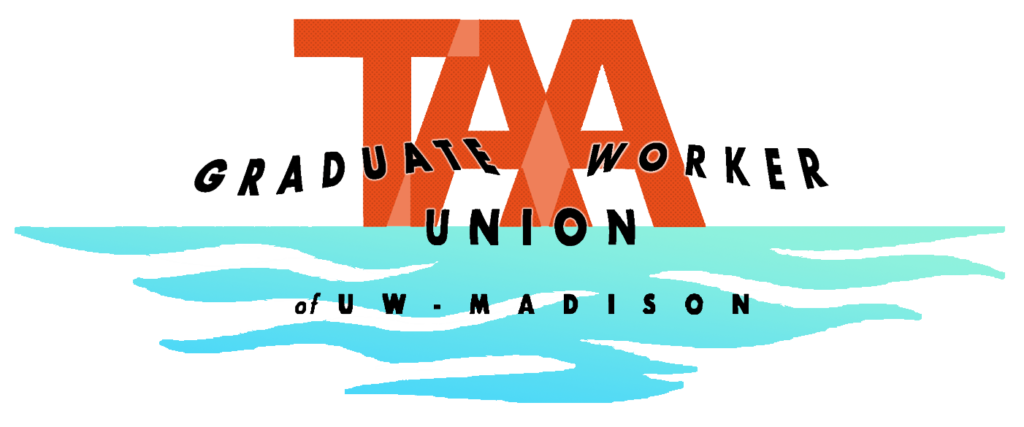Officers & Elections FAQ
Who runs the TAA?
The TAA is ultimately run through votes of its membership. All budgets & dues levels, all changes to our bylaws or constitution, all organizing priorities, bargaining positions, and political endorsements, are determined by a vote of the membership, either at monthly General Membership Meetings (GMM) or, for particularly weighty decisions like officer elections or constitutional changes, by electronic vote of all members (not just those present at a given GMM).
Between GMMs, much of the administrative work is handled by five elected officers: two co-presidents, a recording secretary, a membership secretary, and a treasurer. These officers, along with the chairs of the Stewards Council and standing committees (Contract Enforcement, Diversity, Education, Labor Solidarity, Organizing, Political Education, and Publicity) collectively make up the executive board.
The officers and the executive board draft the agenda for GMMs at which the budget and organizing priorities of the TAA are decided. However, members can change the GMM agenda, either by approaching the executive board ahead of time or through a vote at the beginning of the GMM itself.
How are officers elected?
Officers are elected by vote of the membership. The full procedure is spelled out in the the Constitution and the By-Laws, but the general timeline is as follows:
February:
- Join the union by 60 days before the candidates’ forum to be an eligible elector
March:
- Election Committee appointed
- Nominations open
April:
- Candidates respond to questions at a Candidates’ Forum during the April GMM
- Voting opens for two weeks
Election victors are determined by the election committee’s counting the votes, and take office on June 1
What do the officers do?
The roles of the officers are determined by the Constitution and the By-Laws of the union. But to help you get a sense of their day-to-day work, and whether you want to serve your colleagues in these roles, the 2024-2025 officers shared some details below. All officers attend monthly meetings of the executive board and the membership, but they also schedule these meetings, so that can work around your time commitments. Other duties can be performed at very flexible times.
If you are interested in running for office, definitely don’t hesitate to contact the person currently in that office to learn more, or contact taa@taa-madison.org to nominate yourself or someone else.
Co-Presidents (Article VIII)
As president, you:
- Will help run E-Board meetings and GMMs
- Will handle official communication from the union
- May serve on Contract Enforcement Committee to help graduate students facing harassment or retaliation
- May serve on Stewards’ Council and help organize, plan campaigns and actions
- Will sign checks when necessary
- Will communicate with press or delegate said communication
Treasurer (Article IX)
As union treasurer, your responsibilities include:
- Keeping accounts up-to-date using QuickBooks, our accounting software
- Processing reimbursements for members
- Working with our accountants to pay taxes on time yearly
- Paying monthly per cap payments to our parent union and affiliate organizations
- Developing a union budget yearly
- Facilitating our yearly audit
Recording Secretary (Article X)
Being the Recording secretary mostly involves doing a lot of typing: each month, you would be attending and taking notes at two meetings, and writing 3~4 emails to send out to membership. The formal time commitment is around 10 hours each month, spread out in several small chunks, and for the most part the work isn’t very demanding. If you’re good at taking notes during a lecture, you probably already have most of the skills you’d need!
Membership Secretary (Article XI)
As membership secretary, you will track membership list and keep up to date with new member joins and drops. The requires occasionally updating our email lists to ensure that all members get newsletters, and answering membership related questions, often in communication with our state Staff. The work is about 10 hours each month — maybe a little more towards the beginning of the semester when people are joining, and after the end of the year when people have graduated, and a little less in the middle of the semester when we’re at a steadier state.
